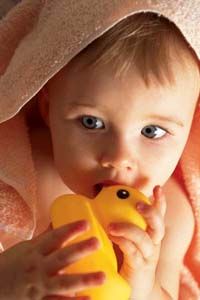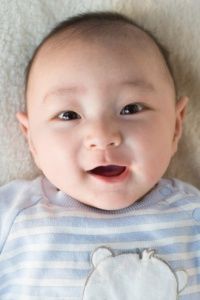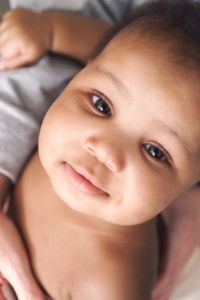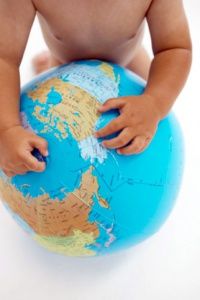Over the last fifty years, American parents have radically increased the variety of names they give their children. In the 1950s, the 50 most popular names accounted for 63.4 percent of all boys born, and 52.1 percent of all girls. But by 2004, the top 50 names covered only 34.6 percent of the boys and 24.4 percent of the girls. As more people move to the United States and use popular or traditional cultural names, the variety of names increases. Also, parents from all ethnic backgrounds are now more likely to search out less common names for their children.
In this new climate for naming, it's more important than ever for parents to have good information on which to base this important decision. This article will provide the help you need to find the best name for your baby. We will compare common and unusual baby names; we will look at how ethnicity and culture have influenced baby-naming trends; and we will examine how the media have affected these trends. Let's get started with some baby-naming tips.
Advertisement
Expert Advice
The first step in this exciting process is to consider as many names as you can. In this article, you'll find a few dozen baby names to get you thinking about the process. You should be especially interested in the name's origin if you want to choose a name that reflects your ethnic background. You should want to learn about the name's history, whether you're looking for a name that is popular today or one that is more nostalgic. You should also want to know about famous people or well-known characters from movies and literature who have had the name, because this is part of the heritage you pass on to your child.
Although you're free to give your baby any name you choose, deciding what to call your child shouldn't be put off until the last minute. Parents should remember that any spur-of-the-moment inspiration for their baby's name could affect that child for a lifetime. Before you choose a name, take the time to ask yourself a few questions:
- Is the name easy to spell and to pronounce?
- Is it easy to remember?
- What nicknames can be derived from it?
- Do the initials form a word? If so, is that word likely to prove embarrassing in any way?
- Does the name itself resemble any words with unsuitable meanings? It's a good idea to check an unabridged dictionary, especially if you are choosing a very uncommon name, to make sure you won't inadvertently cause your child embarrassment.
It is recommended that you give your child a full name rather than a diminutive form of the name. A name that's cute for a baby may not age well. Katherine Louise is preferable to Katie Lou. You can always give a child a nickname, and the traditional form will remain his or her legal name.
Use care in naming your child after a well-known living person, such as a politician or entertainer. You cannot predict anyone's future, and your child might be stuck with a name that has a negative connotation.
Consider your last name, especially if it's hyphenated. Does the first name you've selected flow easily with the middle and last name? Also, avoid using first names that, in conjunction with your last name, are too cute, such as Crystal Glass, Candy Barr, Destiny Child, or Phil Fuller.
If possible, both parents should agree on the baby's name well in advance of the due date. Once you've decided on a name, you should try to stick with it and avoid last-minute changes. Read this information with your family, make lists of your favorite names, and discuss your reactions. Your child will appreciate your thoughtfulness.
One big decision for parents is whether to chose a common or unusual name for their baby. Common and unusual names have their own positives and negatives, according to researchers. Check out their findings in the next section.






